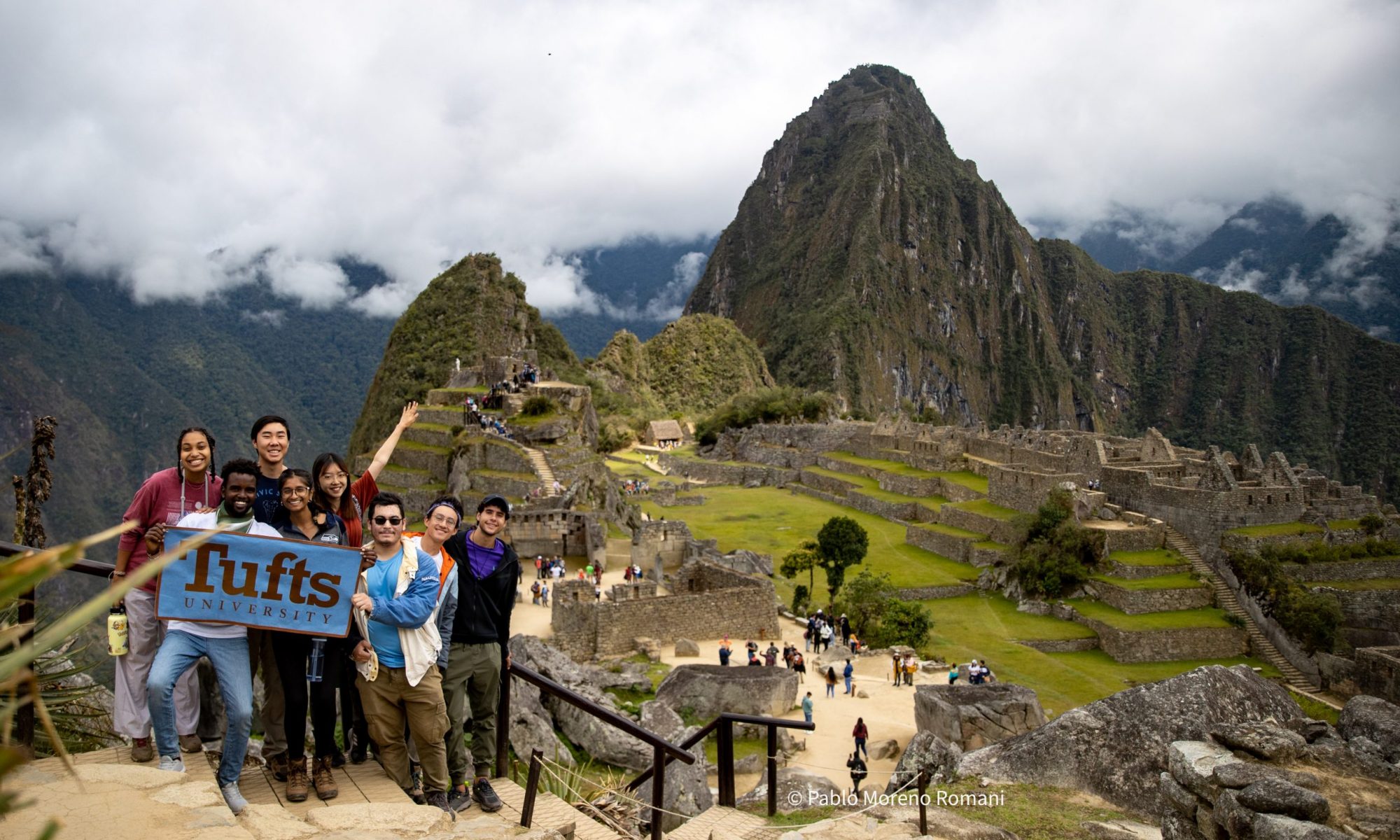by Max, Tufts 1+4 Participant
It was like I was at home again. Today felt oddly similar to a laid-back Sunday with my American family. I relaxed in the morning, enjoyed a delicious barbecue lunch, and played some sports in the evening. This sense of familiarity made the day even better.
11:00 AM:
After a nice breakfast of eggs and bread with my host brother, Jhonatan, I spent the rest of the morning in my room. I caught up a little bit on news from the U.S., wanting to do something both productive and comforting in my alone time. I needed that time away after a busy and tiring Saturday, which was spent with the other Ecuador fellows in our first AMIGOS (in-country organization) workshop.
3:00 PM:
In the afternoon, I headed to Max Whaley’s (another fellow) host family’s house for some cuyes (guinea pigs). No, it was not to play around with them as if they were pets. Instead, they were the main part of our cookout. When Max’s host dad called us to the grill to cook, each of the three of us lingot a chance to spin the spit and then enjoy some cuyes. I felt really torn while I was churning the guinea pig in circles. Although the smell of it was really rich and savory, especially after Max’s host mom applied some special sauce, it looked as if I was roasting a rat. Then, my growling stomach reminded me that I hadn’t eaten in five hours, and I knew I had to keep spinning away. Even though I had already tasted it once before since I arrived in Ecuador, I was still a little hesitant to eat what is seemingly a pet to me. Pet or not, I was reminded again of why I should eat the cuy: I’m a big-time meat eater. Also, once I took my first bite, it didn’t matter to me that I might have been eating a pet. Most importantly, my teeth happily gnawed through some crispy and flavorful flesh. Despite my discomfort in situations like this, I enjoy these constant opportunities that push me out of my comfort zone and get me to try new things that I usually end up liking. Max’s host family generously offered me a country delicacy. The least I could do was accepted their cultural offering with an open mouth.
6:30 PM:
As I have grown up with ice hockey and track as my main sports, I have never considered myself to be much of a soccer player. So, when I played with Henry and his host brother at a park called Plaza del Arte near their apartment, I had to do the best job of pretending I was. Without a lot of natural soccer talent, I used some of my hockey senses to make smart plays with the ball. Playing with them felt similar to my experience speaking Spanish during the bridge year so far. While my foot would roll off of the ball and my ankles would nearly break every time I touched the ball, the others dribbled, passed, and shot perfectly in whatever direction and speed without any problem. To make matters worse, the embarrassment I felt from my countless mistakes while we were playing made me just as embarrassed to try to explain myself in Spanish to my teammate. I got the baby treatment while I was playing with my teammate who kept giving me the softest, easiest to handle passes possible, which I desperately needed. I soon realized these kiddy passes are the only way I’m going to develop my soccer skills. Just like with Spanish, when someone speaks a little bit slower than normal to me, it lets me pick up words here and there and ultimately helps my Spanish skills improve.
While I am sure I will not be playing like Messi any time soon, I am glad I had some quality competition to force me to play my best. Also, with Henry saying he wants to play once every weekend, I will have plenty of opportunities to improve. My language skills are undergoing the same training except that it is daily, beginning once I step outside my room into the Spanish-speaking world.







